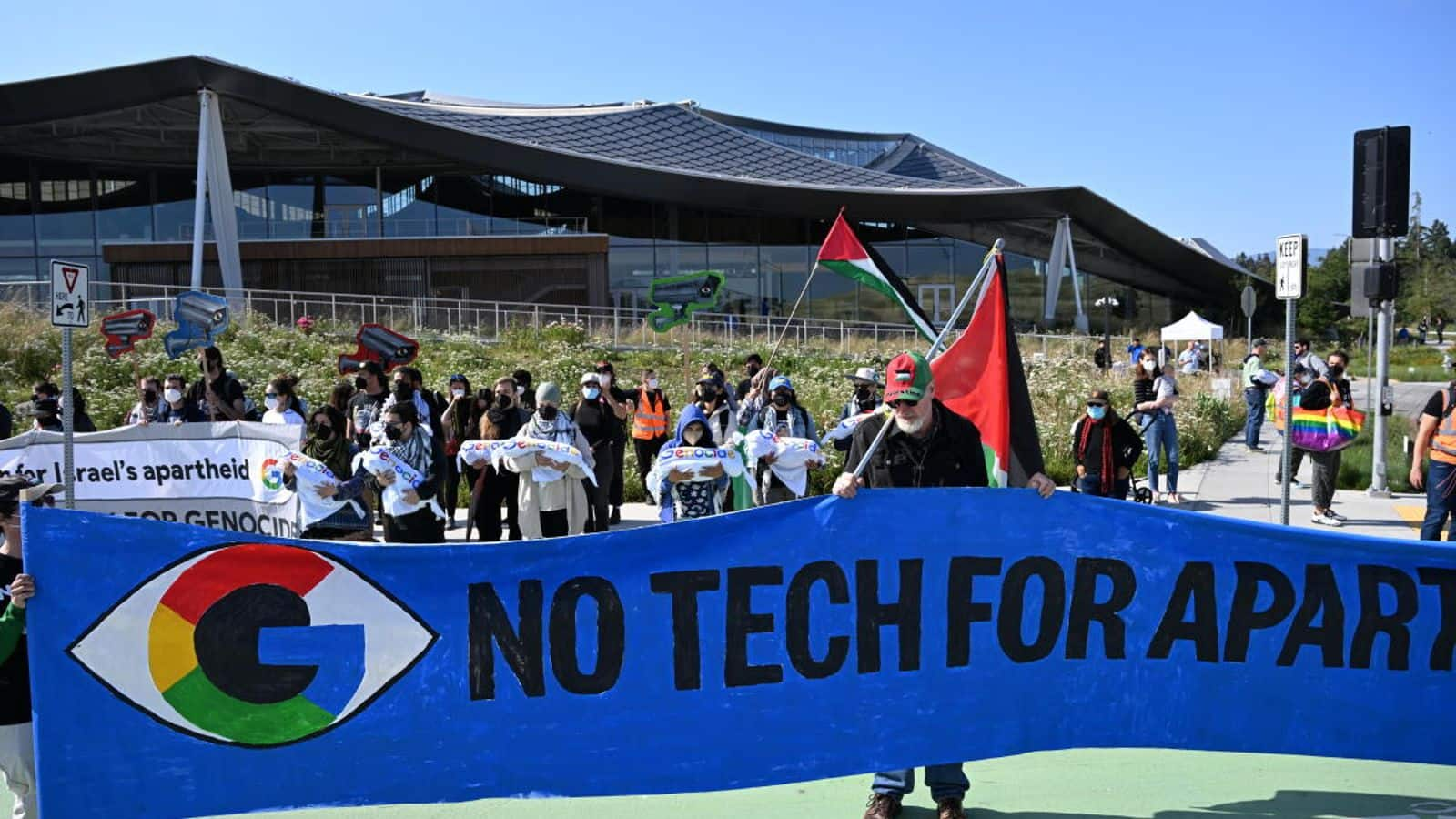
Over 1,100 students boycott Google, Amazon amid Project Nimbus controversy
What's the story
The No Tech for Apartheid (NOTA) coalition, a group of tech workers advocating for the termination of contracts between big tech firms and the Israeli government, is close to reaching its campaign goal. As reported by WIRED, over 1,100 STEM students and young professionals have pledged not to accept job offers from Google and Amazon. The reason behind their decision is the companies' involvement in "powering Israel's Apartheid system and genocide against Palestinians."
Campaign details
NOTA's campaign goal and Project Nimbus explained
The campaign led by NOTA aims to gather 1,200 signatures from students and young professionals. The participants have committed: "As young people and students in STEM and beyond, we refuse to have any part in these horrific abuses. We're joining the #NoTechForApartheid campaign to demand Amazon and Google immediately end Project Nimbus." Project Nimbus is a $1.2 billion contract won by Google and Amazon to provide cloud computing, machine learning, and artificial intelligence services to the Israeli government and military.
Response
Google refutes claims, students from top universities join boycott
A spokesperson from Google has denied allegations that the firm's Nimbus contract involves "highly sensitive, classified or military workloads relevant to weapons or intelligence services." Despite this, the boycott continues to gain traction, with supporters including undergraduate/graduate students from UC Berkeley, Stanford, the University of San Francisco, and San Francisco State University. These institutions are situated in the same state as Google's headquarters.
Past protests
NOTA's previous actions against tech companies
NOTA has a history of organizing protests against tech companies' involvement with Israel. These protests have included sit-ins and office takeovers, leading to Google terminating dozens of workers. In March, a NOTA organizer was dismissed from Google after he interrupted an executive at an Israeli tech conference in New York, stating that he refuses to "build technology that powers genocide or surveillance."